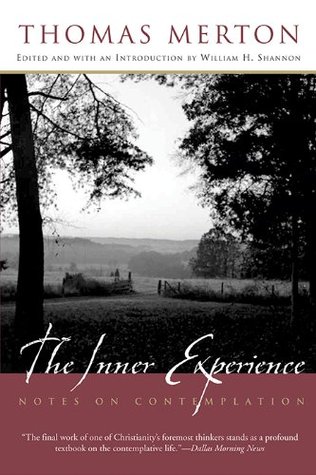More on this book
Kindle Notes & Highlights
Read between
April 22 - June 7, 2016
The sacred attitude is essentially contemplative, and the secular attitude essentially active. That does not mean that there cannot be an activity that is sacred (based on love). But even such activit...
This highlight has been truncated due to consecutive passage length restrictions.
The man whose view of life is purely secular hates himself interiorly, while seeming to love himself. He hates himself in the sense that he cannot stand to be “with” or “by” himself. And because he hates himself, he also tends to hate God, because he cannot abide the inner loneliness which must be suffered and accepted before God can be found. His rebellion against his own inner loneliness and poverty turns into pride. Pride is the fixation of the exterior self upon itself and the rejection of all other elements in the self for which it is incapable of assuming responsibility. This includes
...more
There is a subtle but inescapable connection between the “sacred” attitude and the acceptance of one’s inmost self. The movement of recognition which accepts our own obscure and unknown self produces the sensation of a “numinous” presence within us. This sacred awe is no mere magic illusion, but the real expression of a release of spiritual energy, testifying to our own interior reunion and reconciliation with that which is deepest in us and, through the inner self, with the transcendent and invisible power of God. This implies humility, or the full acceptance of all that we have tended to
...more
Thus the man with the “sacred” view is one who does not need to hate himself, and is never afraid or ashamed to remain with his own loneliness, for in it he is at peace, and through it he can come to the presence of God. More still, he is able to go out from his own loneliness to find God in other men.
The basic and most fundamental problem of the spiritual life is this acceptance of our hidden and dark self, with which we tend to identify all the evil that is in us. We must learn by discernment to separate the evil growth of our actions from the good ground of the soul. And we must prepare that ground so that a new life can grow up from it within us, beyond our knowledge and beyond our conscious control. The sacred attitude is, then, one of reverence, awe, and silence before the mystery that begins to take place within us when we become aware of our inmost self. In silence, hope,
...more
It is really this total and uncompromising docility to the will of God that gives a man a taste for spiritual things. It is this delicate instinct to yield to the slightest movement of God’s love that makes the true contemplative. As St. Thomas says: Per obedientiam homo efficitur idoneus ad videndum Deum. “It is obedience that makes a man fit to see God.”
Strictly speaking, contemplation is an immediate and in some sense passive intuition of the inmost reality, of our spiritual self and of God present within us.1 But there is also an active and mediate form of contemplation in which this perception is attained in some measure by our own efforts, though with the mysterious and invisible help of grace.
The revelation of this “passive” intuition seems to be implicit in the statements from St. John’s Gospel that have just been quoted. When Christ says, “I will manifest myself to him,” it means that the “activity” is on the side of the Lord, and that the one who contemplates the divine presence is in no position to bring about its manifestation by any effort of his own. Nor is he capable of increasing or modifying it by his efforts. And even, in some cases, he is incapable of preventing it. The classical expression for such a grace as this is that it is effected in us and without us: In nobis
...more
Also, active contemplation can never attain the depth and the purity of infused contemplation, which, in its purest form, takes place entirely without conceptual mediation. In active contemplation concept and judgment, or at least acts of faith springing from a certain mental activity, serve as a springboard for contemplative intuitions and for states of quietude more or less prolonged.
In active contemplation, there is a deliberate and sustained effort to detect the will of God in events and to bring one’s whole self into harmony with that will. Active contemplation depends on ascesis of abandonment, a systematic relaxation of the tensions of the exterior self and a renunciation of its tyrannical claims and demands, in order to move in a dimension that escapes our understanding and overflows in all directions our capacity to plan. The element of dialectic in active contemplation is centered on the discovery of God’s will, that is to say, the identification of the real
...more
But along with this there is a deep concern with the symbolic and ritual enactment of those sacred mysteries which represent2 the divine actions by which the redemption and sanctification of the world is effected.3 In other words, active contemplation rests on a deep ground of liturgical, historical, and cultural tradition: but a livi...
This highlight has been truncated due to consecutive passage length restrictions.


